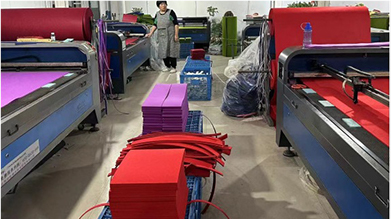felt polishing wheels
Felt polishing wheels are essential tools in various industries, particularly in metalworking, woodworking, and automotive applications. These wheels are made primarily of felt, a dense fabric created by pressing and matting fibers together. The unique properties of felt make it an ideal material for polishing and finishing surfaces due to its ability to hold polishing compounds and its gentle touch, which can produce high-quality finishes without scratching the workpiece.
The primary advantage of felt polishing wheels lies in their versatility. They can be used on a wide range of materials, including metals like steel, brass, aluminum, and even softer materials like wood and plastics. This versatility makes them popular among professionals and hobbyists alike. Whether you need to polish a rough surface, remove oxidation, or prepare a piece for further finishing, felt polishing wheels can effectively meet these needs.
Felt wheels are available in various sizes, shapes, and densities, allowing users to select the most suitable option for their specific application. Common shapes include discs, cones, and cylinders, which can be used in different polishing configurations. The density of the felt also varies, influencing the wheel's hardness and, subsequently, its polishing capability. Softer wheels are more suited for finer finishes, while harder felt wheels can tackle more abrasive tasks.
When using felt polishing wheels, it's important to consider the choice of polishing compounds or abrasives. These compounds enhance the polishing process by providing the necessary material to abrade the surface. Common compounds used with felt wheels include rouge for fine polishing of metals, tripoli for general polishing, and various types of wax or oil for wood surfaces. The right combination of wheel and compound can significantly affect the quality of the finish achieved.
felt polishing wheels

One of the key benefits of using felt polishing wheels is the consistency they offer in the finishing process
. Unlike traditional abrasive methods, which can create uneven surface textures, felt wheels provide a uniform finish, ensuring that workpieces maintain their integrity and aesthetic appeal. This is especially crucial in industries where appearance and precise specifications are vital.Maintenance of felt polishing wheels is relatively straightforward. After use, it's advisable to clean the wheels to remove any accumulated polishing compound and debris. Simple methods include using a proper cleaning brush or soaking the wheels in cleaning solutions designed for felt materials. Regular maintenance can extend the life of the wheels and maintain their polishing efficiency.
In conclusion, felt polishing wheels are invaluable tools in the arsenal of anyone involved in surface finishing and polishing. Their versatility, ease of use, and effectiveness in producing consistent, high-quality finishes make them a preferred choice across various industries. Whether for professional use or hobbies, investing in felt polishing wheels and the right compounds can significantly enhance the quality of work and reduce the time spent on finishing tasks. As technology advances, we can only expect the applications and innovations surrounding felt polishing wheels to expand, further solidifying their place in modern manufacturing and craftsmanship.
-
What Makes Felt a Great Choice?NewsNov.19,2024
-
Total Mixed Ration (TMR) Feed for CattleNewsNov.19,2024
-
The Ultimate Guide for Felt Polishing WheelsNewsNov.19,2024
-
Industrial Felt for Various ApplicationsNewsNov.19,2024
-
Felt Makeup Bags and Inserts BagsNewsNov.19,2024
-
Choosing the Right Hotel TowelsNewsNov.19,2024
-
Your Go-To Guide For Affordable Wholesale Wool FeltsNewsOct.31,2024







